Search
Remove Ads
Advertisement
Summary 
Loading AI-generated summary based on World History Encyclopedia articles ...
Search Results
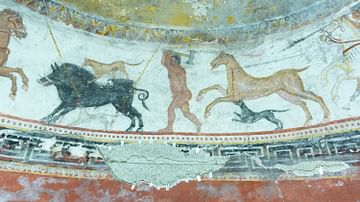
Definition
Thracian Art
The art produced by the people of Thrace, as indicated by the many precious objects found in Thracian tombs dating from the Bronze Age onwards, was, like the culture itself, a mix of indigenous ideas and foreign influences. Although it can...
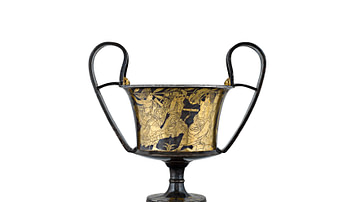
Article
Foreign Influences & Imported Luxuries in Thrace
Defining Thracian art is a difficult task due to the fact that what we call today Thrace was never a single unified state but, rather, a collection of many independent communities (or tribes) who formed both alliances and rivalries with each...
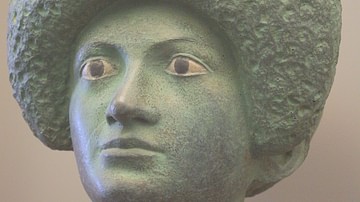
Definition
Roman Art
The Romans controlled such a vast empire for so long a period that a summary of the art produced in that time can only be a brief and selective one. Perhaps, though, the greatest points of distinction for Roman art are its very diversity...
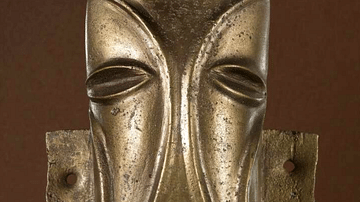
Definition
Ancient Celtic Art
Art, along with language, is perhaps the best way to see the connections between the ancient peoples we label as Celts who lived in Iron Age Europe. There were great variations across time and space but common features of ancient Celtic art...
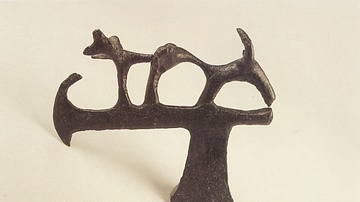
Image
Thracian Miniature Axe, Regional Museum of History - Stara Zagora
Miniature axe, decorated with protomes of a bull, griffin, and a deer. The blade is shaped as a stylised goat head. 8th-7th century BCE. Regional Museum of History - Stara Zagora. Photo: Nikolay Genov in catalogue of the exhibition Los...

Definition
Renaissance Art
The art of the Renaissance period in Europe (1400-1600 CE) includes some of the most recognisable and best-loved paintings and sculptures in the world. Masters were often skilled in both painting and sculpture, and by studying the art of...
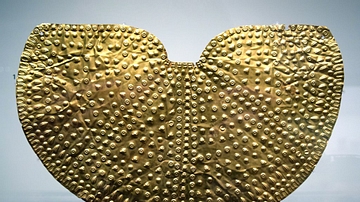
Image
Thracian Gold Pectoral
A Thracian gold pectoral. From a king's tomb at Dalboki, Bulgaria. 500-400 BCE. (Ashmolean Museum, Oxford)

Definition
Ancient Egyptian Art
The artworks of ancient Egypt have fascinated people for thousands of years. The early Greek and later Roman artists were influenced by Egyptian techniques and their art would inspire those of other cultures up to the present day. Many artists...
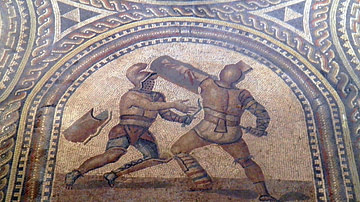
Image
Mosaic with a Thracian and a Murmillo
Roman mosaic panel depicting a Thraex, or Thracian (left) fighting a murmillo (right), dated to the 3rd century CE.
Römerhalle, Bad Kreuznach, Germany.
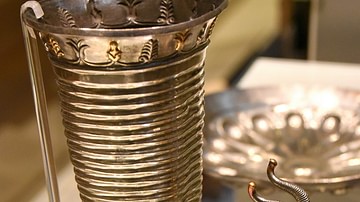
Definition
Ancient Persian Art and Architecture
Persian art and architecture in the present day is associated with the nation of Iran and usually designated as beginning with the Achaemenid Empire (c. 550-330 BCE) but has an even longer history with its origins dating back to before the...